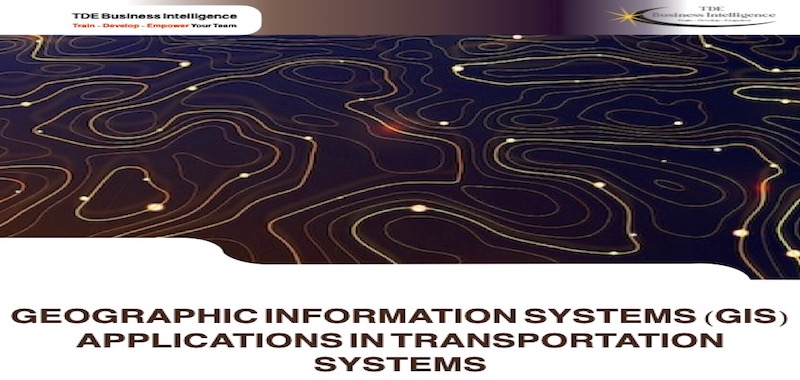
SCHEDULE
| Dates | Venue | Category |
| 21-25 August 2023 | Bangkok – Thailand | IT-Security |
INTRODUCTION
This Geographic Information System (GIS) Applications in Transportation Systems Engineering / Planning training course is set to deliver a comprehensive understanding of the fundamentals of Geographic Information System (GIS) and introduce transportation infrastructure and road safety-related data collection, and analytical methodologies and techniques utilizing Geographic Information System (GIS).
Authorities in many developed countries now actively use Geographic Information System (GIS) for highways and transport management, mainly due to the benefits of falling costs and increasing ease in planning, monitoring and managing complex systems involved in transportation planning and management, accident analysis, and route planning.
The Geographic Information System (GIS) tools and techniques significantly aid in determining capacity enhancements, improving operations, and identifying the most strategic investments for keeping the transportation system in any country running optimally. This seminar is designed not only to cover the technical aspects of how to use Geographic Information System (GIS) but also to develop critical spatial thinking and spatial decision-making skills.
BENEFITS OF ATTENDING
- Have a thorough understanding of how Geographic Information System (GIS) can help in transportation studies
- Identify trends in traffic operations and safety performance measures, leading to improvement in transportation safety
- Detect root causes of traffic incidents and determine effective countermeasures
- Evaluate the performance of segments, corridors, networks, or regions
WHO SHOULD ATTEND?
- Traffic & Transportation Engineers and Professionals
- Professionals in Urban Planning and Development
- Project Managers in Infrastructure Solutions Consulting
- Data Analysts, Technicians in Traffic Management Centers
- Researchers and Consultants
- Practitioners in Traffic and Transport Engineering
- Traffic Safety Professionals
- Highway and Roadway Design Engineers
COURSE OUTLINE
Session 1: Geographical Information Systems (GIS) Fundamentals
- Geographic Information System (GIS) Applications in General
- Geographic Information System (GIS) Applications in Transportation Studies
- Major Functions of Geographic Information System (GIS)
- Relating Information from Multiple Sources
- Geographic Data and the Database
- Data Acquisition
- Data Integration
- Data Structure
- Data Modeling
- ArcMap Practice
Session 2: Understanding Geographic Information System (GIS) Maps
- Data Information
- Spatial data
- Geographic Information System (GIS) Database
- Raster vs. Vector Data
- GIS Shapefiles
- ESRI Shapefile format
- Displaying and Navigating Geographic Information System (GIS) Maps
- Feature Attributes
- Census Units
- The Point, Line, Polygon Data
Session 3: Data Collection
- Global Positioning System (GPS)
- Geographic Data Library
- Census Data
- Transportation Data and Analytics with Geographic Information System (GIS)
- Geospatial Crash Analysis
Session 4: Visualization and Data Processing
- Symbolizing and Labeling Geographic Information System (GIS) Data
- Continuous and Categorical Data
- Classification Methods
- Normalization
- Geographic Information System (GIS) Data Query
- Classification
- Identify, Select, Find
- Select Features by Attributes
- Joining and Relating Tables
- Spatial Joining
- Dissolving and Clipping layers
Session 5: Geospatial Analysis and Hotspot Analysis
- Introduction to Spatial Analysis
- Buffering Features
- Overlaying Data
- Spatial Analysis Methods to Identify Hotspots
- Fishnet-based Analysis
- Kernel Density Estimation
